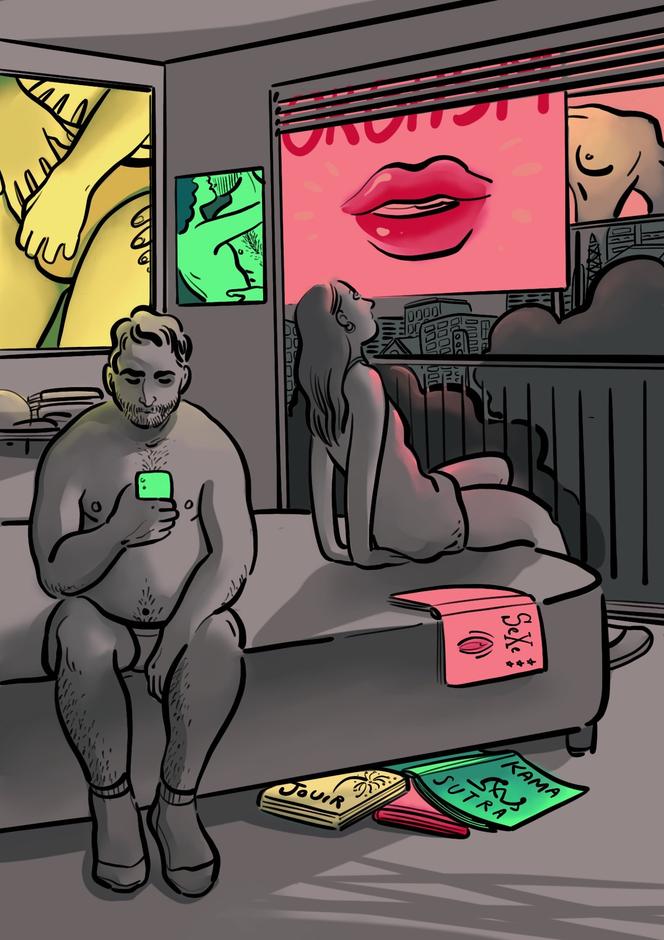

SEX ACCORDING TO MAÏA

Since the January 26 survey by IFOP (the French Institute of Public Opinion) devoted to the "sexual recession," we've had to update the national narrative. France is not, or no longer, the Land of Plenty for sex. Far from it. The frequency of sexual relations is declining more or less spectacularly, in all age categories. The number of couples who have sex at least once a week has fallen by 15 points since 2009. Meanwhile, the number of sexually inactive people has almost tripled. This decline in sex is accompanied by the rise of asexuality (asexuals are people who feel no sexual attraction), an orientation that emerged in the media some 15 years ago, and which is a big hit in bookstores.
The "sex recession" in fact covers several very different realities. Some French people have never had any interest in sexuality (asexuals), others have no access to sexuality (they suffer), others are simply lazy, are giving themselves a break or prefer to devote themselves to other priorities (they choose). This last category deserves our full attention, because it's the only one that results from a decision.
Today (still according to the same IFOP survey), 38% of French women and 25% of men attach no importance to sex, and 54% of French women and 42% of men could actually live as a couple without sex! Not only are these figures enormous, they also call into question some of our cultural givens: "Desire makes the world go round," "eros is a fundamental drive," "sex is the glue that holds a couple together," "no pleasure surpasses an orgasm..."
Either we've overestimated the importance of sexuality in the past, in which case we're witnessing a very legitimate readjustment of our values. Or something has changed, making sex objectively less interesting or enjoyable. My hypothesis is that since sexual liberation has massively increased the dissemination of content devoted to pleasure via magazines, internet forums, movies, TV shows and pornographic films, an absolutely insane amount of expectation has been built up around sexuality. To put it more simply: the bar has been set too high.
Let's be clear: there's no question of going back to the way things were, nor of denying the benefits of greater media coverage of sexuality. After centuries of deliberate silence and stigmatization, it seems quite understandable to me that our society had a need to present sex as something wonderful (an opinion I share, needless to say).
You have 60.76% of this article left to read. The rest is for subscribers only.
